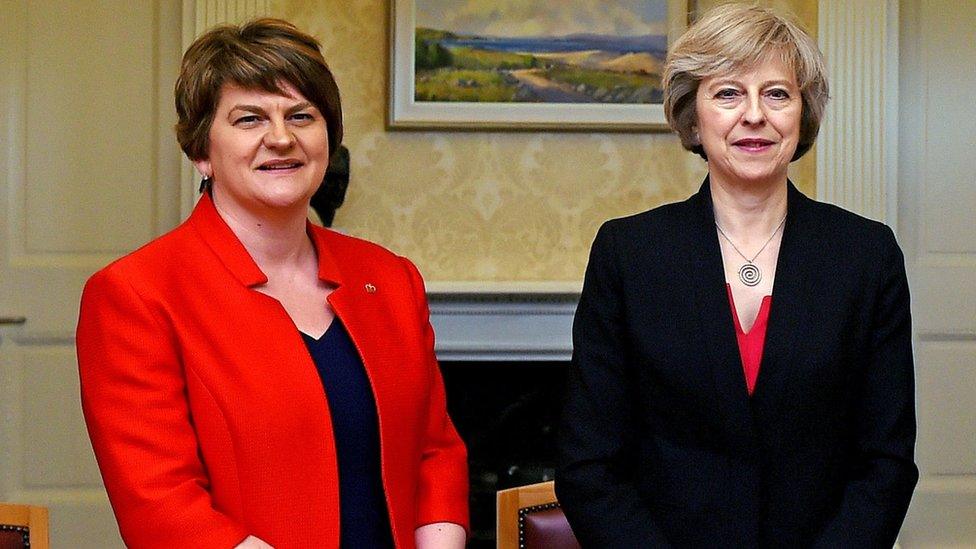Will Tories and DUP seal a deal?
- Published

Arlene Foster met Theresa May in Downing Street on Tuesday
For four days we've been told the deal between the Tories and the DUP was pretty much complete.
Number 10 even jumped the gun with an administrative cock-up late on Saturday night that announced the pact had been signed.
On Tuesday, Westminster sources confidently predicted there would be a functioning government with a majority in the Commons within 36 hours - the 'T's had been crossed and the 'I's dotted.
There have been suggestions that the DUP has been enjoying its moment of power and attention, so is in no hurry.
Suggestions on the other side that Number 10, still reeling from May's political miscalculation, is not functioning properly, so is slow to conclude the deal.
And yesterday, sources told me Treasury and Cabinet Office involvement is holding things up but there are no big issues.
The government's number-crunchers are nervous about the kinds of promises that are being made.
I could here mention the consequences for the Barnett Formula, but I'll spare you that and simply say that the Treasury is cautious about splashing taxpayers' cash.
With the disaster at Grenfell Tower, the government's attention and desired timing for announcing the deal has shifted.
But as we get towards the end of the week, with suggestions the deal won't be done finally until Monday, it is worth asking what happens if it can't be done?
With the other Northern Irish parties visiting Number 10 today, there is clear disquiet about the principle of doing the deal in the first place.
The DUP has no interest in crashing Theresa May or the Tories. They are certainly never going to lift a finger in any way that could be helpful to Jeremy Corbyn.
They are natural allies of the Tories and as we've reported, they have been informally helping them out for the last few years.
So there is very little chance they would vote against the government's main measures - crucially the first big test, the Queen's Speech.
There are therefore Tories, including Sir John Major, who believe it would be better to avoid the risk of dealing with them and go it alone in minority government.
For Theresa May though, her desire to introduce at least one layer of stability into this rocky situation is strong.
Locking at least 10 MPs into supporting her at times of need provides at least a modicum of political protection.
Moreover if the talks fail and no deal is done she'll have botched the first political challenge of this fragile post-election period.
The DUP will have lost their big shot at more heavy influence.
It is in neither side's interest to allow the deal to dive - and with the Queen's Speech just announced for Wednesday, it's a sign of increasing confidence in government the deal is a matter of when not if.